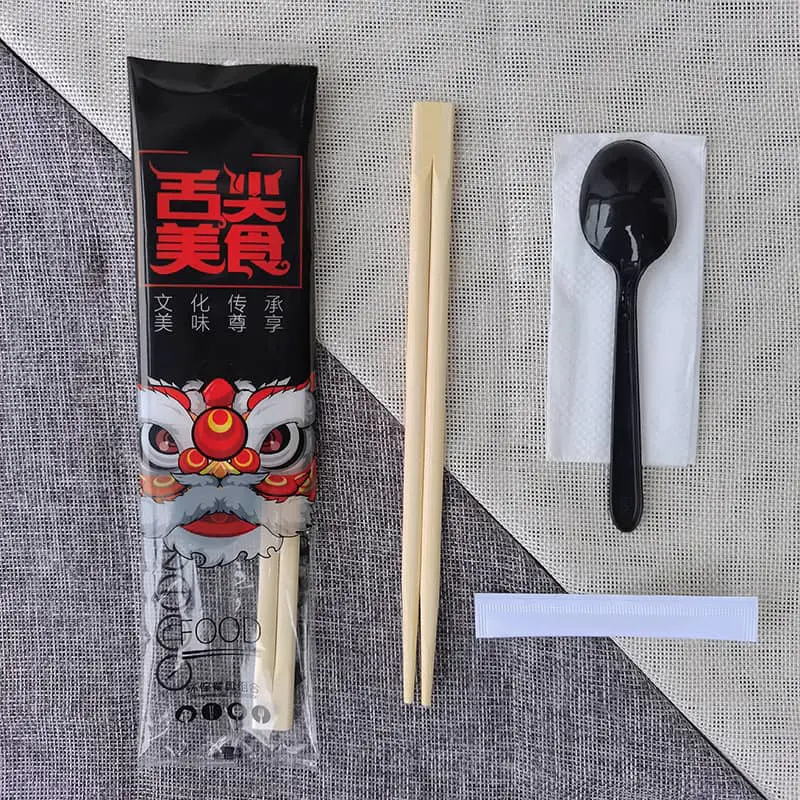Why Choose Biodegradable Disposable Takeaway Food Tableware Sets?
 The shift toward sustainable living has led to a growing demand for alternatives to single-use plastic tableware. biodegradable disposable takeaway food tableware sets offer a practical and eco-conscious solution for both consumers and businesses. Unlike traditional plastic, which can take centuries to decompose, biodegradable options break down naturally, reducing environmental harm.
The shift toward sustainable living has led to a growing demand for alternatives to single-use plastic tableware. biodegradable disposable takeaway food tableware sets offer a practical and eco-conscious solution for both consumers and businesses. Unlike traditional plastic, which can take centuries to decompose, biodegradable options break down naturally, reducing environmental harm.
Environmental Benefits Over Traditional Plastic
Plastic pollution remains one of the most pressing environmental issues, with millions of tons of plastic waste entering landfills and oceans each year. Conventional plastic tableware contributes significantly to this problem due to its non-degradable nature. In contrast, biodegradable disposable takeaway food tableware sets are designed to decompose under natural conditions, minimizing long-term waste. These products are typically made from plant-based materials such as cornstarch, bamboo, or sugarcane pulp, which return to the earth without leaving toxic residues.
Another critical advantage is the reduction in carbon footprint. Manufacturing plastic requires fossil fuels, whereas biodegradable materials often come from renewable resources. Additionally, composting these products can enrich soil instead of polluting it, creating a circular economy where waste becomes a resource rather than a burden.
Common Materials Used in Biodegradable Tableware
Not all biodegradable tableware is created equal. The most widely used materials include:
Polylactic Acid (PLA): Derived from fermented plant starch (usually corn), PLA is a popular bioplastic used in cups, plates, and cutlery. It is compostable under industrial conditions but may not break down efficiently in home compost bins.
Bamboo: Known for its rapid growth and durability, bamboo is an excellent material for plates, bowls, and utensils. It is naturally antimicrobial and sturdy enough for hot and cold foods.
Sugarcane Bagasse: A byproduct of sugar production, bagasse is molded into sturdy containers ideal for takeaway meals. It is both microwave-safe and compostable.
Each material has its strengths, making it essential to choose based on specific needs—whether for durability, heat resistance, or composting compatibility.
Best Use Cases for Biodegradable Tableware
While biodegradable disposable takeaway food tableware sets are versatile, they excel in certain scenarios:
Food Delivery Services: Restaurants and delivery platforms can reduce their environmental impact by switching to biodegradable packaging.
Outdoor Events: Picnics, festivals, and camping trips benefit from tableware that won't linger in nature if accidentally left behind.
Corporate Catering: Offices hosting meetings or lunches can demonstrate sustainability commitments by using compostable tableware.
By understanding these applications, businesses and consumers can make informed choices that align with eco-friendly practices.
Compostable Disposable Food Containers with Cutlery: What to Look For
As sustainability becomes a priority, compostable disposable food containers with cutlery sets are gaining popularity. However, not all products labeled as "eco-friendly" meet true compostability standards. Knowing what to look for ensures that your choice genuinely benefits the environment.
Difference Between Biodegradable and Compostable
While the terms are often used interchangeably, they are not the same:
Biodegradable: Means the product will break down over time, but the process can take years without specific conditions.
Compostable: Requires the right environment (heat, moisture, microbes) to decompose within months, leaving no toxic residue.
For compostable disposable food containers with cutlery sets, certifications are crucial in verifying claims.
Key Certifications to Verify
Reputable certifications include:
BPI (Biodegradable Products Institute): Ensures products meet ASTM compostability standards in the U.S.
OK Compost (TÜV Austria): Confirms industrial compostability in Europe.
Home Compostable (AS5810): Indicates the product breaks down in backyard compost bins.
Without these certifications, "compostable" claims may be misleading, leading to improper disposal and contamination in composting facilities.
Proper Disposal Methods
Even certified compostable disposable food containers with cutlery sets must be disposed of correctly:
Industrial Composting: Most compostable tableware requires high-temperature facilities. Check local composting services to confirm acceptance.
Home Composting: Only a few materials (like certain bamboo products) decompose efficiently in home compost.
Avoid Landfills: Without oxygen, compostable materials may release methane, a potent greenhouse gas.
Educating consumers on proper disposal ensures these products fulfill their environmental promise.










